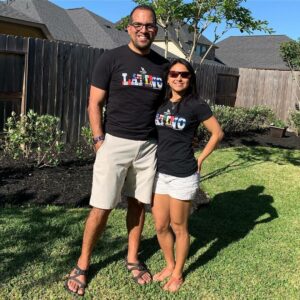 My wife, Kellie, and I were sitting across the dining table from each
My wife, Kellie, and I were sitting across the dining table from each
other last night, each working on our laptops and trying to finish up
end-of-the-day stuff. “Hey, we can come back to this later, honey. Why don’t we do a little Examen?”
As we settled into our comfy chairs, the reflections just started pouring out. Granted, we had some weighty topics on our minds given that a relatively young friend in Maryland had just died unexpectedly. As we gave ourselves space to actually feel the emotions surrounding that event, we felt God tend our souls together: the sorrow, the fragility of life, the sympathy for his wife and kids—all anchored in the presence of God and in our prayers for God’s loving comfort.
That reflection gave way to fresh insights about our relationship with one another—how God was meeting Kellie with wisdom from a difficult conversation the day before, how God was helping me be more attentive to her everyday desires. As we walked downstairs to start making dinner, we felt immense gratitude for those precious moments of connection…and the awareness that this experience might all have been lost to us if we had stayed on our laptops.
The Need for Connection
The competition for our attention is fierce, is it not? Between the urgent demands of being a Young Life leader, a college student, an employee, the pressing needs of family, and the incessant distraction of our mobile device —along with the craving for distraction and entertainment that those demands exacerbate—we don’t have much bandwidth left over for the one thing that matters most.
Connection.
Connection to our own hearts, connection to the people we love most, and connection to God: we know intellectually that these comprise the tap-root of life…and we all live to some extent with an underdeveloped root system, making the “tree” of our lives unstable at best, untrustworthy at worst.
Where were you in my day?
What were the spiritual movements within my soul?
What would you want me to notice or change or celebrate from
my day?
What if there was a spiritual practice that was as natural as it was simple, one that required no great knowledge—only great desire? The ancients called it the Daily Examen, and it is one of the most potent ways to pay attention to the story of our lives. Paying attention: isn’t that the crux of life. The alternative is to sleepwalk our way through our days with only passing awareness of what’s really happening and why it matters.
The Daily Examen
470 years ago, a Spanish priest named Saint Ignatius of Loyola articulated the terms “consolation” and “desolation” as tools for paying attention to the movement of God in our lives. Consolations are those things that move us closer to God, closer to life, closer to love…while desolation is its opposite: those things that move us further from God, from life, and from love.
As we pay attention to the spiritual ebb and flow of our lives, we begin to notice experiences, conversations, activities, and situations—both large and small—by looking at them through these lenses. Ignatius also structured this consolation/desolation idea as a daily practice he called the Examination of Conscience…or the Daily Examen for short. At the end of each day, sit down in a quiet, peaceful setting—either alone, with a spouse, or with a spiritual friend—and tune in. Some light a candle. Kellie and I like to add some Chardonnay and aged cheddar to the experience.
So what do you do?
Allow your mind to scan back across the events of the day, asking Jesus, “Where were you in my day? What were the spiritual movements within my soul? What would you want me to notice or change or celebrate from my day?” Take turns sharing those consolations and desolations with one another…and respond in prayerful silence or with a gentle affirmation.
How easy is that? It’s one of the simplest yet most powerful practices for paying attention to your spiritual journey and spiritual partner. Ultimately, both consolations and desolations are meant to move us toward God as we grow in our ability to notice and respond to God’s work in our lives over time. I am finding this to be true in mine.




